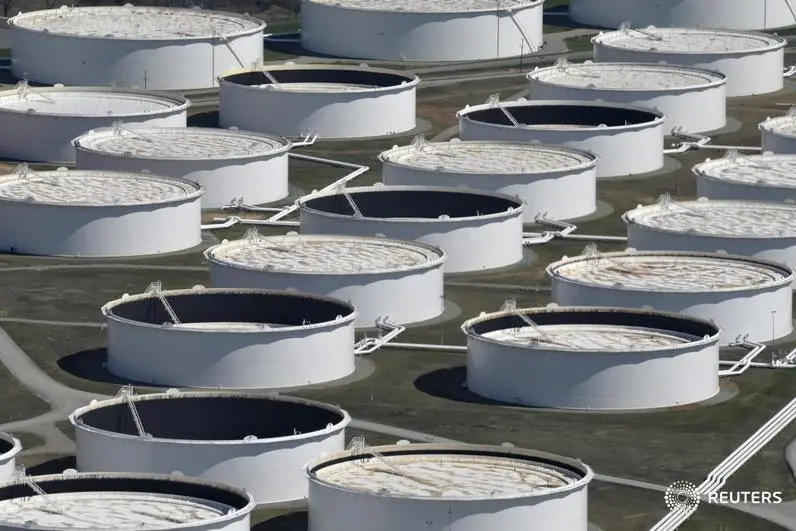PHOTO
NEW YORK - Oil prices were little changed on Friday as the market balanced a weaker U.S. dollar and mixed U.S. jobs reports, but both crude benchmarks ended the first week of the year lower due to global recession concerns.
Brent futures fell 12 cents, or 0.2%, to settle at $78.57 a barrel, while U.S. West Texas Intermediate (WTI) crude rose 10 cents, or 0.1%, to settle at $73.77.
For the week, both Brent and WTI were down over 8%, their biggest weekly dives to start the year since 2016. Both benchmarks had gained about 13% during the prior three weeks.
"The oil market might be regaining some composure following the bloodbath earlier this week, but the upside potential remains limited, at least in the near term. The economic outlook is clouded," PVM analyst Stephen Brennock said.
U.S. services industry activity in November contracted for the first time in more than 2-1/2 years, according to a report from the Institute for Supply Management (ISM).
But another report showed the U.S. economy added jobs at a solid clip in December, pushing the unemployment rate back to a pre-pandemic low of 3.5% as the labor market remains tight.
That U.S. jobs report caused the U.S. dollar to fall and global stocks to rally as investors bet that inflation is easing and the U.S. Federal Reserve (Fed) need not be as aggressive as some feared.
A weaker dollar can boost demand for oil, as dollar-denominated commodities become cheaper for holders of other currencies.
Atlanta Federal Reserve (Fed) President Raphael Bostic said the latest U.S. jobs figures are another sign that the economy is gradually slowing and should that continue the Fed can step down to a quarter percentage point interest rate hike at its next policy meeting.
The world's top crude exporter, Saudi Arabia, lowered prices for the Arab light crude it sells to Asia to its lowest since November 2021 amid the global pressures hitting oil.
Stock markets in China, the world's largest crude oil importer, logged a five-day winning streak on Friday on investors' expectations that the Chinese economy would soon emerge from its COVID woes and stage a robust recovery in 2023.
But, more countries around the world are demanding visitors from China take COVID tests, days before China drops border controls and ushers in an eagerly awaited return to travel for a population that has been largely stuck at home for three years.
Euro zone inflation tumbled last month but underlying price pressures are still rising and economic growth indicators are surprisingly benign, suggesting that the European Central Bank will keep raising interest rates for months to come.
India's government expects economic growth to slow in the financial year ending March, as pandemic-related distortions ease and pent-up demand for goods levels out going into 2023.
(Reporting by Rowena Edwards in London, Emily Chow in Singapore and Scott DiSavino in New York; Editing by Marguerita Choy, Mark Porter and David Gregorio)





















